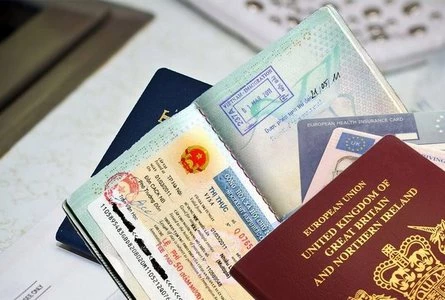Vietnam considers 10-year "Golden Visa" to attract global talent and investment
Strengthening Vietnam's role in regional scientific cooperation / Vietnam proposes extension of VAT reduction to stimulate economic growth
A strategic shift in immigration policy
In April 2025, the Vietnam Tourism Advisory Board (TAB) formally submitted a proposal to the government advocating for the introduction of a long-term residency program, informally referred to as the "Golden Visa". This initiative is intended to enhance Vietnam's competitiveness as a destination for global talent, entrepreneurs, and affluent individuals by offering extended residency options ranging from five to ten years.
The proposal reflects comparable initiatives currently implemented in other Southeast Asian countries. Thailand, for example, has launched a long-term residency visa valid for up to 10 years to attract foreign professionals and investors. Malaysia recently reinstated its "Malaysia My Second Home" program, aimed at stimulating local economic growth through long-term foreign residency.
According to the proposal, eligible applicants would include foreign nationals with advanced professional qualifications, a proven track record in business, or substantial financial resources. Initial implementation could be piloted in major economic and tourist centers such as Hanoi, Ho Chi Minh City, Da Nang, and Phu Quoc.
The TAB contends that this visa policy could make a significant contribution to national economic development by attracting high-quality foreign investment and fostering a more dynamic business environment. It is also consistent with the government’s broader strategy to diversify tourism services and attract visitors who stay longer and spend more.

Opportunities and challenges ahead
The prospective advantages of a 10-year visa are diverse. From an economic perspective, long-term foreign residents are likely to invest in local enterprises, facilitate knowledge transfer, and support the advancement of key sectors such as technology, finance, and education. In the context of tourism, the proposed visa may enable Vietnam to shift its focus from mass tourism to a more sustainable, quality-driven model.
Furthermore, such a policy could enhance Vietnam's regional competitiveness by offering an attractive alternative for individuals seeking economic opportunity and political stability within Southeast Asia.
Nonetheless, the successful implementation of the Golden Visa will require meticulous planning. Legal experts and economic analysts have emphasized the importance of a transparent regulatory framework that establishes clear eligibility standards, application processes, and compliance mechanisms. Additionally, Vietnam must assess the capacity of infrastructure and public services in pilot locations to ensure their readiness to accommodate an increase in long-term foreign residents.
There are also concerns regarding the potential for social and economic disparity, particularly if the visa program disproportionately favors high-net-worth individuals while neglecting broader immigration reforms. Robust monitoring and evaluation systems will be essential to measure the program’s effectiveness and mitigate any unintended consequences.
The proposed 10-year Golden Visa constitutes a strategic initiative that could enable Vietnam to attract global expertise and financial capital amid an increasingly competitive international environment. If implemented with transparency and foresight, it has the potential to drive economic growth, diversify the tourism sector, and elevate Vietnam’s status as a regional center for talent and innovation. However, the ultimate success of the policy will depend on the establishment of clear implementation protocols and ongoing oversight to ensure alignment with national priorities.
End of content
Không có tin nào tiếp theo



